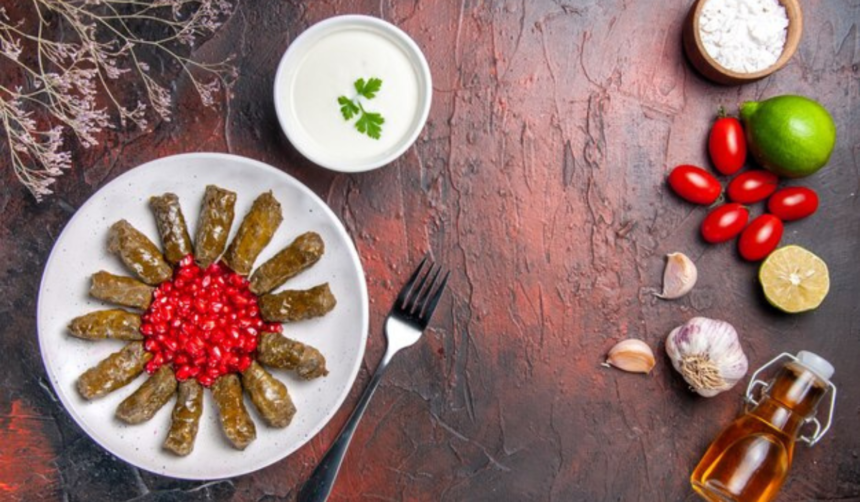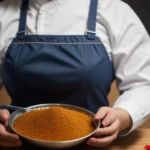The art of Greek cooking has been celebrated for centuries for its vibrant flavors, fresh ingredients, and rich history. Traditional Greek recipes have been passed down through generations, creating a culinary legacy that continues to be cherished around the world. In recent years, there has been a resurgence of interest in Greek cuisine, with modern twists being added to classic dishes to create new and exciting flavors. “The Art of Greek Cooking: Traditional Recipes and Modern Twists” explores this fusion of old and new, offering a comprehensive guide to Greek cooking that will inspire both novice and experienced cooks alike.
1. Introduction to Greek Cuisine
Greek cuisine is characterized by its use of fresh, seasonal ingredients, bold flavors, and simple cooking techniques. Olive oil, fresh herbs, garlic, and citrus are common staples in Greek cooking, along with a variety of vegetables, grains, and proteins. Traditional Greek dishes are often centered around the Mediterranean diet, which is known for its health benefits and focus on whole foods.
2. History of Greek Cooking
Greek cuisine has a long and storied history, dating back to ancient times. Influenced by the diverse cultures that have inhabited the region over the centuries, Greek cooking has evolved to become a melting pot of flavors and techniques. From the simple, rustic dishes of the ancient Greeks to the elaborate feasts of the Byzantine Empire, Greek food has always been a reflection of the country’s rich history and cultural diversity.
3. Key Ingredients in Greek Cooking
Some of the key ingredients in Greek cooking include:
– Olive oil: A staple in Greek cuisine, olive oil is used for cooking, dressing salads, and flavoring dishes.
– Fresh herbs: Herbs like oregano, mint, dill, and parsley are commonly used to add flavor and freshness to Greek dishes.
– Feta cheese: A soft, tangy cheese made from sheep’s milk, feta is a quintessential ingredient in Greek cuisine.
– Lemons: Lemons are used to add a bright, citrusy flavor to many Greek dishes, from salads to soups to meats.
– Yogurt: Greek yogurt is a thick, creamy yogurt that is often used in both sweet and savory dishes.
4. Traditional Greek Recipes
Some of the most iconic Greek dishes include:
– Moussaka: A layered casserole with eggplant, ground meat, and bechamel sauce.
– Spanakopita: A savory pastry filled with spinach, feta cheese, and herbs.
– Gyros: Grilled meat (often lamb or chicken) served in a pita with tzatziki sauce.
– Souvlaki: Skewers of marinated meat (often pork or chicken) grilled to perfection.
– Baklava: A sweet and sticky dessert made with layers of phyllo dough, nuts, and honey.
5. Modern Twists on Traditional Greek Dishes
In recent years, chefs and home cooks alike have been experimenting with traditional Greek recipes, adding modern twists to create new and exciting flavors. Some examples of modern twists on classic Greek dishes include:
– Lamb burgers with feta and tzatziki sauce
– Greek salad with watermelon and feta
– Greek-style tacos with gyro meat and tzatziki
– Lemon and herb roasted chicken with Greek yogurt sauce
– Baklava cheesecake with honey and pistachios
6. The Importance of Fresh Ingredients
Fresh, high-quality ingredients are the cornerstone of Greek cooking. Whether it’s ripe tomatoes, fragrant herbs, or locally sourced meats, using the best ingredients possible is essential for creating delicious Greek dishes. In Greece, many people grow their own fruits and vegetables, ensuring that they have access to the freshest produce possible.
7. Regional Variations in Greek Cuisine
Greece is a country with diverse landscapes and culinary traditions, leading to a wide variety of regional variations in Greek cuisine. Each region has its own specialties and ingredients that are unique to that area. For example, the island of Crete is known for its olive oil, honey, and fresh seafood, while the region of Macedonia is famous for its hearty stews and grilled meats.
8. Tips for Cooking Greek Food at Home
Cooking Greek food at home can be a rewarding and delicious experience. Here are some tips for getting started:
– Use fresh herbs and spices to add flavor to dishes.
– Don’t be afraid to experiment with different ingredients and flavors.
– Invest in high-quality olive oil and feta cheese for authentic Greek flavors.
– Serve dishes with a side of Greek yogurt or tzatziki sauce for a creamy, tangy finish.
– Don’t forget to garnish dishes with fresh herbs and a squeeze of lemon for a pop of brightness.
9. Health Benefits of Greek Cuisine
Greek cuisine is known for its health benefits, thanks to its emphasis on fresh ingredients and whole foods. The Mediterranean diet, of which Greek cuisine is a key component, has been linked to a variety of health benefits, including reduced risk of heart disease, improved weight management, and better overall health. The use of olive oil, fresh herbs, and lean proteins in Greek cooking all contribute to the healthiness of the cuisine.
10. Pairing Greek Food with Wine
Greek cuisine is best enjoyed with a glass of wine, and there are many excellent Greek wines that pair perfectly with traditional Greek dishes. Some popular wine varietals from Greece include Assyrtiko, Xinomavro, and Agiorgitiko, each of which offers a unique flavor profile that complements Greek food. Whether you’re sipping on a crisp white wine with a seafood dish or enjoying a bold red with a hearty stew, Greek wine is the perfect accompaniment to a Greek meal.
11. Cooking Greek Food for Special Occasions
Greek cuisine is perfect for special occasions, from festive holidays to family gatherings. Whether you’re cooking a traditional Easter feast or hosting a summer barbecue, there are plenty of Greek dishes that are perfect for celebrating with loved ones. Some traditional Greek dishes that are popular for special occasions include roasted lamb with potatoes, Greek Easter bread (tsoureki), and honey-drenched loukoumades (Greek doughnuts).
12. Greek Cooking Classes and Culinary Tours
For those who want to dive deeper into the world of Greek cooking, there are a variety of cooking classes and culinary tours available in Greece and around the world. These experiences offer a hands-on opportunity to learn traditional Greek recipes, sample local ingredients, and immerse yourself in the culinary culture of Greece. Whether you’re a beginner cook looking to expand your skills or a seasoned chef looking for new inspiration, a Greek cooking class or culinary tour is a fun and educational way to explore the art of Greek cuisine.
13. The Future of Greek Cooking
As interest in Greek cuisine continues to grow, the future of Greek cooking looks bright. Chefs and home cooks around the world are discovering the joys of cooking Greek food, from its fresh flavors to its rich history. With a focus on using high-quality ingredients, traditional cooking techniques, and modern twists, Greek cuisine is poised to remain a beloved and exciting culinary tradition for years to come.
14. Conclusion
Greek cooking is a celebration of fresh ingredients, bold flavors, and rich history. “The Art of Greek Cooking: Traditional Recipes and Modern Twists” offers a comprehensive guide to Greek cuisine, showcasing the best of both traditional dishes and modern innovations. Whether you’re a seasoned cook or a beginner in the kitchen, exploring the world of Greek cooking is a delicious and rewarding experience that will inspire you to create memorable meals for yourself and your loved ones.
15. Resources for Further Exploration
For those interested in learning more about Greek cooking, there are a variety of resources available, from cookbooks to cooking classes to culinary tours. Some recommended resources for further exploration include:
– “The Greek Vegetarian Cookbook” by Heather Thomas
– “Ikaria: Lessons on Food, Life, and Longevity from the Greek Island Where People Forget to Die” by Diane Kochilas
– Eat Greek Tonight (www.eatgreeklive.com) – A website with a variety of Greek recipes and cooking tips
– Culinary Backstreets (www.culinarybackstreets.com) – Offers culinary tours in Greece and around the world, including tours focused on Greek cuisine
With its vibrant flavors, fresh ingredients, and rich culinary history, Greek cooking is a true art form that continues to capture the hearts and palates of food lovers worldwide. Whether you’re cooking a traditional Greek recipe or putting a modern twist on a classic dish, the world of Greek cuisine is full of endless possibilities for delicious and satisfying meals. So, grab a bottle of Greek wine, gather some fresh herbs and vegetables, and get ready to explore the art of Greek cooking in your own kitchen. Opa!
















